GarageBand's greatest hits
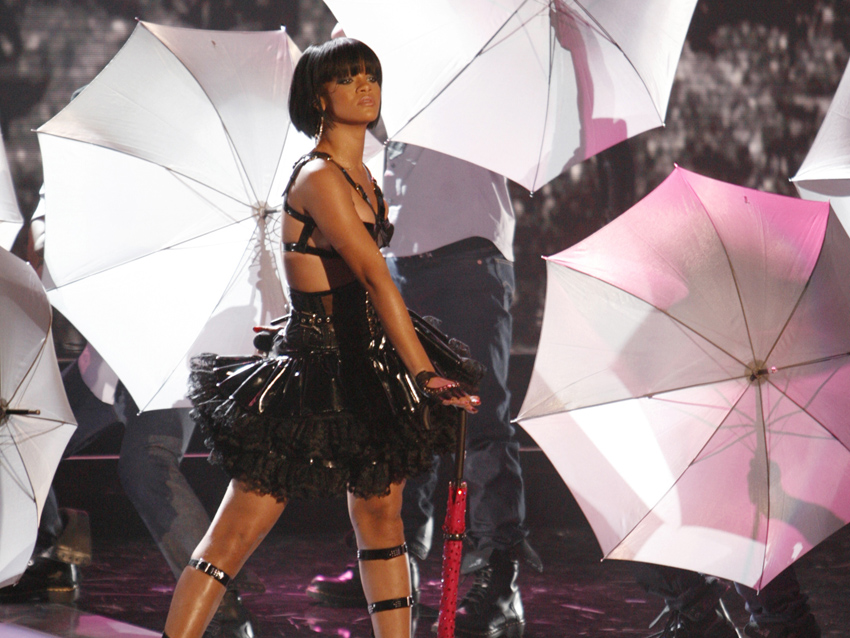
Easy does it
GarageBand is a great piece of music making software for beginners, and with good reason: it’s fast, fun and creative. But it doesn’t just appeal to those at the start of their musical journey - professional producers also use the software, from employing it as an ideas scratchpad to building tracks based on its Apple Loops.
Don’t believe us? Then allow us to list the following records, all of which are believed to have featured GarageBand at some stage of their production.
For a complete guide to using GarageBand for Mac and iPad, check out GarageBand: The Ultimate Guide, which is on sale now and features step-by-step tutorials on the software’s top features. It’s also available as a digital edition.
NEXT: Rihanna - Umbrella
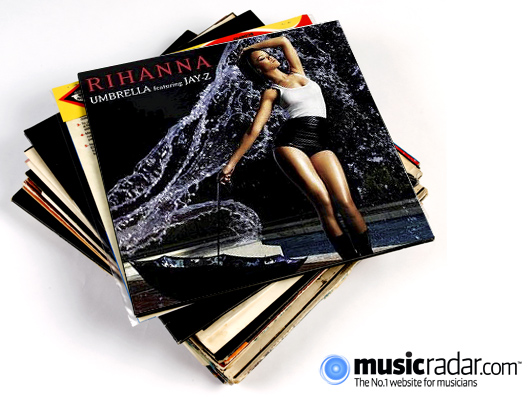
Rihanna - Umbrella
The Barbadian singer’s 2007 smash is arguably the most famous ‘GarageBand song’ of them all, because its distinctive beat is basically a beefed-up version of one of the drum loops that comes supplied with the software. Go and dig out the Vintage Funk Kit 03 beat, then play it back at about 90bpm to hear what we mean.
The story goes that producers Christopher ‘Tricky’ Stewart, Terius ‘The-Dream’ Nash and Kuk Harrell were messing around with the loop and then quickly added chords and vocals over the top. So, you might argue that this simple beat was the inspiration for the entire song.
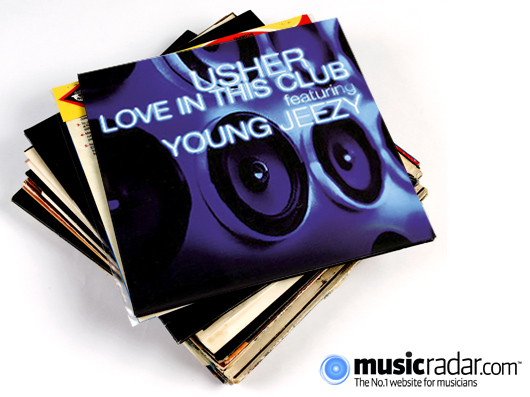
Usher - Love In This Club
OK, this is a bit of a cheeky one, because the loops that form a big part of this track - Euro Hero Synth 02 and Euro Hero Synth 03 - come from the Apple Remix Tools Jam Pack rather than the GarageBand library. However, they’re designed to be used in GarageBand, so we’re classing Love In This Club as a GarageBand hit.
Some people criticised producer Polow da Don for making such heavy use of what are stock sounds, but he was perfectly entitled to, and you have to give him credit for having an ear for a hit. And Love In This Club was certainly a hit, reaching Number 4 in the UK and Number 1 in the US.
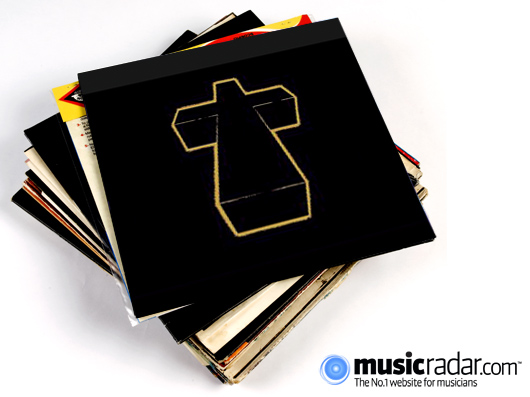
Justice - Cross
Defying those who’ve said that GarageBand is better suited to making rock music than it is dance, French duo Justice are long-term fans of Apple’s entry-level software, and it’s rumoured that they used it to help create at least some of their debut album, Cross.
“A lot of people think it’s bullshit when we say we use GarageBand, but it’s actually an amazing tool,” Justice man Xavier de Rosnay is on record as saying. That’s the stuff!
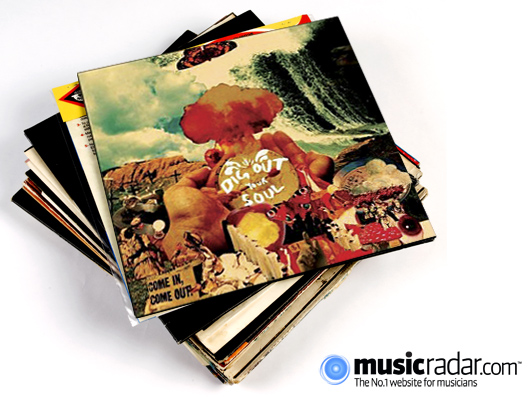
Oasis - Dig Out Your Soul
Unlikely as it may seem, Noel Gallagher has said that some of the demos for what turned out to be Oasis’s final album were recorded in GarageBand.
“I had my own fully functioning recording studio with an EMI II desk and a really cool Neve desk. But I kind of got sick of it because the demos were starting to sound better than the records,” Gallagher said back in 2008. “We actually do our demos now in Gem [Archer]’s bedroom on his little GarageBand computer.”
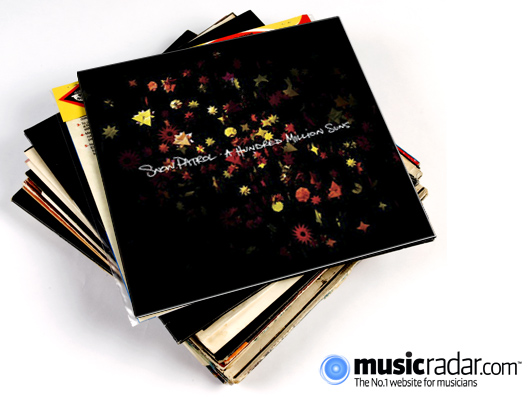
Snow Patrol - A Hundred Million Suns
Snow Patrol frontman Gary Lightbody is a big fan of GarageBand, as he explained in 2008. “I’m on GarageBand every day just making noise really, be it on the tour bus, in the hotel or at my house - I just try and do as much recording as I possibly can,” he revealed.
Given this extensive use of the software, it’s hardly surprising that pretty much all of Snow Patrol’s fifth album began life in GarageBand. “I had about 220 songs in GarageBand by the end of the Eyes Open tour,” Lightbody explained. “We narrowed it down to about 30 songs and then we recorded about 20.”
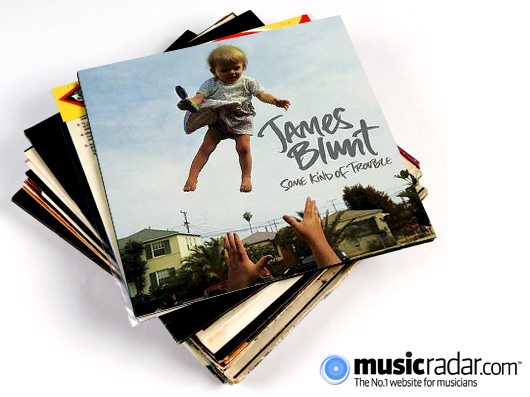
James Blunt - Some Kind Of Trouble
He might not be everyone’s cup of tea, but James Blunt is canny enough to know that, when it comes to writing songs, GarageBand’s easy workflow is a real bonus.
Discussing the demoing process he used for his third album in 2011, he said: “I keep it really, really basic. I just whack things down to GarageBand, simple as that. I try not to get too embroiled in the demoing process. My approach is to write the song, record it simply, and have it so that I can remember it for when we go into a proper studio. If I have the chords, the lyrics and the melody down, I’m good.”
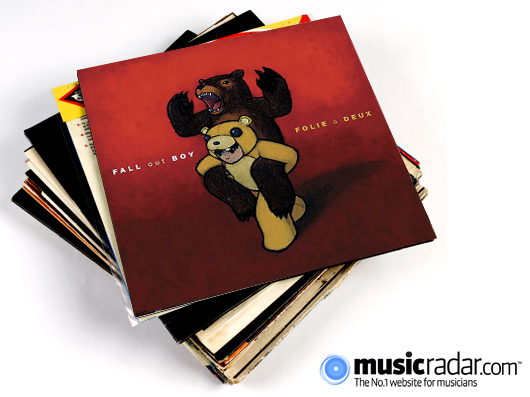
Fall Out Boy - Folie Deux
Another band who appreciate the value of getting ideas down quickly are Fall Out Boy. Their guitarist Joe Trohman has let it be known that he and his band’s singer/guitarist Patrick Stump used GarageBand to make the initial recordings for their 2008 long player Folie à Deux.
“We’ve used other programs, but GarageBand offers us a better way to get our ideas down,” Joe explained. “Patrick lays down a lot of his ideas on GarageBand - he sends me the files and then I work on my guitar parts on my system. What’s great is, they sound like real records. Plus, GarageBand has great tones, so when I put down guitar lines, the band doesn’t have to guess what they’re going to sound like. They pretty much know what I’m going to do on the record.”
For a complete guide to using GarageBand for Mac and iPad, check out GarageBand: The Ultimate Guide, which is on sale now and features step-by-step tutorials on the software’s top features. It’s also available as a digital edition.
Liked this? Now read: The 11 best DAW software apps in the world today
Computer Music magazine is the world’s best selling publication dedicated solely to making great music with your Mac or PC computer. Each issue it brings its lucky readers the best in cutting-edge tutorials, need-to-know, expert software reviews and even all the tools you actually need to make great music today, courtesy of our legendary CM Plugin Suite.


